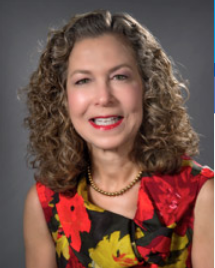Karen Kostroff, chief of breast surgery at Northwell Health, has been advocating for Color Genomics cancer testing the last two months, hoping to make genetic testing more available to people so they can better counter cancer.
While Kostroff says the price of genetic testing is declining because of companies competing, typical testing can still cost thousands of dollars and often requires there to be a family history of a specific cancer to be partially covered by insurance.
“This is solely part of being having access to something that was a void in practice and so it allows me, people who didn’t meet the national guidelines, but who could be at risk, to be tested,” Kostroff said.
Kostroff said that Color’s genetic testing differs from typical genetic testing in its scope, price and availability. A kit from Color tests 30 genes correlated with increased risks for breast, ovarian, uterine, colon and melanoma cancers for approximately $250. If one tests positive, the company offers another test for $50 per immediate family.
Kostroff described this as a means of both self-care and helping one’s family.
“It can be powerful to turn to your child and say I don’t have any of those things,” Kostroff said.
Kostroff noted that 10 percent of Ashkenazi women who got breast cancer had no family history of certain genes associated with the disease – but actually ended up having those genes.
“You could say there’s an advocate for all Ashkenazi Jewish women to test at age 30 if they want to, so that they either know that they have it or don’t, so they can decide on their surveillance,” Kostroff said.
“We know we’re under-testing people throughout the United States,” Kostroff added. “Lack of family history doesn’t mean you can’t have something.”
Kostroff said she first began advocating for more people to use Color about two months ago, making her one of the first to push for it on Long Island. Now, she said, there is an ongoing effort to get more cancer physicians and doctors to “spread the word around and market it directly to the consumer.”
“The uptick has been excellent. It’s a conversation. I would say 90 percent of people that I offered to proceed to do it,” Kostroff said.
“So it’s a great tool when we feel its appropriate, and the majority of the people are going to be negative, which is a relief to them too and their families that they’ve done the most up to date thing they can do based on present knowledge,” Kostroff added.



